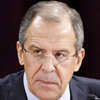November 27
10:00–11:00
10:00–11:00
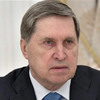
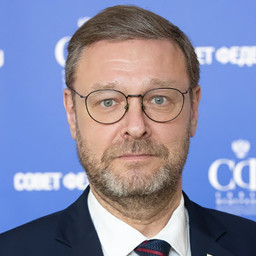
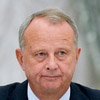
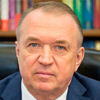
11:15–12:45
11:15–12:45
Political Risks for Global Energy Markets
The years 2022–23 became a period of another dramatic shock for the world economy, especially affecting the global energy sector. Following the 2020–2021 pandemic, which caused lockdowns, massive reduction in travel, and a sharp drop in fossil fuels demand, leading to negative peak oil prices, political events of the last year shook the energy market once again. The rise of gas prices in Europe above the level of $3,000 per 1,000 cubic meters as a result of the sanctions and reduction of Russian gas supplies to the European market, as well as the introduction of a price ceiling for Russian oil supplies, forced all energy market players to reconsider their strategies and quickly change their usual development guidelines. Such shocks not only destroy sustainable development dynamics but also give new impetus to those companies seeking to establish themselves in perspective areas and occupy new market niches with high growth potential. Challenges and opportunities in a turbulent environment raise the successful ones and make it difficult for those who, ignoring political risks, do not see the consequences of the ongoing changes, relying on the usual standards of established approaches. How fast and dynamic will the changes in transport logistics be with a reorientation to the East, how effective can the payments between countries in national currencies become, how will the global financial market change influenced by the move away from the dollar in the oil business?
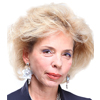
Dean of the Faculty of International Energy Business, Gubkin University of Oil and Gas
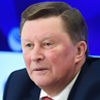
Special Presidential Representative for Environmental Protection, Ecology and Transport
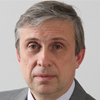
Deputy Director for Scientific Work, Primakov Institute of World Economy and International Relations (IMEMO)
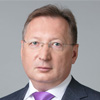
General Director of Zarubezhneft JSC
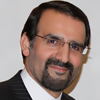
Associate Professor at the University of Tehran, director of the Institute for Iran-Eurasia Studies (IRAS), Iran (online)
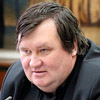
Deputy Director for Scientific Work, Primakov Institute of World Economy and International Relations (IMEMO)
13:00–15:00
13:00–15:00
16:00–17:30
16:00–17:30
The Middle East: The Tragedy and Challenges of the Unresolved Conflict
The escalation of the Palestinian-Israeli conflict, large-scale armed clashes and numerous civilian casualties have generated a powerful public reaction in the Middle East and beyond. The tragic events have become a serious challenge for the states of the region. While the beginning of the post-globalization era has opened up for them an opportunity to pursue their national interests through a more diversified policy, the consequences of the bloodshed threaten the stability of the fragile states and may slow down the implementation of development strategies in the prosperous ones. Under the current conditions, trends aimed at de-escalation have been pushed back or frozen. It is obvious that priority in the Middle East should be given to security issues and to a search for political settlement of the Palestinian problem.
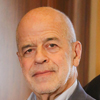
Scientific Director of the Institute of Oriental Studies of the Russian Academy of Sciences, Full Member of the Russian Academy of Sciences
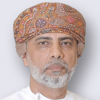
Professor of the Department of Economics and Finance, Qaboos Sultan University, Oman
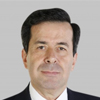
Professor of the Department of Political Science and International Relations, Başkent University, Türkiye
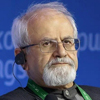
Senior Distinguished Fellow at the Institute for Political and International Studies (IPIS), Professor of International Relations, School of International Relations, Iran
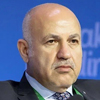
Advisor to the Russian Centre of Science and Culture (RCSC) in Damascus, Syria
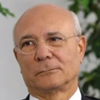
Former Senior Under Secretary at the Egyptian Ministry of Foreign Affairs, former Assistant Secretary General of the United Nations and Deputy Special Envoy for Syria (2014–2019) (online)
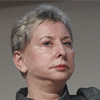
Head of the Center for the Middle East Studies, Primakov Institute of World Economy and International Relations (IMEMO)
18:00–19:30
18:00–19:30
China-U.S.: Competition, Interdependence, Global Context
The U.S.-China rivalry is becoming protracted, and the consequences of this confrontation are spreading to many spheres of the world economy and politics. As mutual political trust between the two countries wanes, the threat of military conflict increases. Having achieved tremendous growth over several decades, trade between the U.S. and China has begun to decline in 2023. The original premise of the "trade war" was the expectation that China was too dependent on export markets and would therefore be forced to accept American demands. Western policies of "decoupling" and "risk reduction" have been accompanied by an increased use of trade barriers and technological prohibitions.
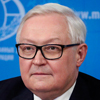
Deputy Minister of Foreign Affairs of the Russian Federation
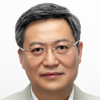
Director of the Institute of World Economics and Politics (IWEP), Chinese Academy of Social Sciences (CASS), China (online)
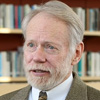
Professor Emeritus of the Department of Political Science, Columbia University, USA (online)
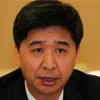
Chairman of the All-China Association for the Study of Russia, Eastern Europe and Central Asia, Director of the Institute of Social Development of Europe and Asia of the Development Research Center of the State Council of the PRC, China

Distinguished Fellow at the Council on Foreign Relations, USA (online)
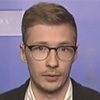
Acting Director of the Institute for the U.S. and Canadian Studies, Russian Academy of Sciences
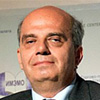
Deputy Director for Scientific Work of Primakov Institute of World Economy and International Relations (IMEMO)
November 28
09:30–11:00
09:30–11:00
Special session with participation of Alexey Likhachev, Director General of the State Atomic Energy Corporation "Rosatom"
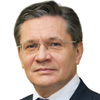

President of the Primakov Institute of World Economy and International Relations, Full Member of the Russian Academy of Sciences
11:30–13:00
11:30–13:00
Russia-Africa: From Program Guidelines to Cooperation Practices
In 2023, the second Russia-Africa summit was held, at which issues of political, economic and humanitarian cooperation between Russia and Africa in the era of the formation of a new world order were discussed. Both Russia and Africa have an understanding that in order to truly liberate themselves from colonial dependence and defend their own sovereignty, as well as to ensure security in the broad sense of the word, it is necessary not only to transfer our cooperation to a new strategic level, but also to move from general declarations to a concrete step-by-step plan for the implementation of all the tasks we have set. The acute military-political conflict had a strong impact on the functioning of the world economy but allowed the accumulation of rich working experience in unfavorable conditions. New crises of various kinds are likely to arise. Balancing the economic interests of countries and peoples is as important for a sustainable world order as lasting peace and indivisible security.
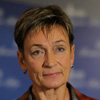
Director of the Institute of Africa of the Russian Academy of Sciences
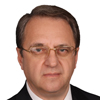
Deputy Minister of Foreign Affairs of the Russian Federation

President of Uganda (online)
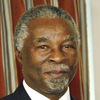
South African politician, the second President of the Republic of South Africa (1999–2008)
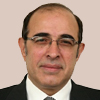
Founder and Chairman of KATO Investment, Egypt
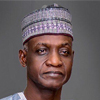
Founder and Chairman of the Mustafa Bello Foundation for Small Enterprise Development, former Minister of Commerce of the Federal Republic of Nigeria (1999–2002)
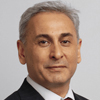
First Deputy CEO, Member of the Board of Directors, PJSC PhosAgro
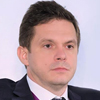
Chairman of the Board of Directors of FESCO Transportation Group
14:00–15:30
14:00–15:30
Central Asia, South Caucasus and Russia in Search of New Development Models
In recent years, the confrontation on security issues between Russia and Western countries has moved into a phase of direct military and political confrontation in Ukraine. Opposition to Russia's special military operation has become an idèe fixe of the policy of the United States and a number of Western countries. At the same time, the resulting large-scale crisis turned out to be an important component of the process of transformation of world politics and the formation of a polycentric world order. This process is likely to take quite a long period of time. In the meantime, the world is becoming, as it has been for centuries of human history, more "anarchic" and less predictable. Different countries are adapting to changing circumstances in their own way and are in search of effective development models. Of particular interest is the experience of searching for their own path of development by the countries of South Caucasus and Central Asia, which occupy an important place in modern Eurasia.
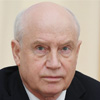
Secretary General of the Commonwealth of Independent States (CIS)
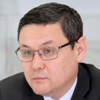
Director of the Kazakhstan Institute for Strategic Studies (KazISS) under the President of the Republic of Kazakhstan
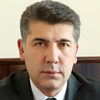
First Deputy Director of the Institute for Strategic and Regional Studies (ISRS) under the President of the Republic of Uzbekistan
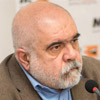
Director of Caucasus Institute, Armenia
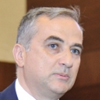
Chairman of the Center of Analysis of International Relations (AIR Center), Azerbaijan
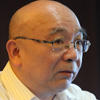
Director of the Research Institute of Eurasian Studies, Professor of the Shanghai University of Political Science and Law, China
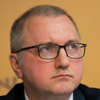
Head of the Center for Post-Soviet Studies at Primakov Institute of World Economy and International Relations (IMEMO)
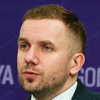
Senior Researcher at the Center for Post-Soviet Studies at Primakov Institute of World Economy and International Relations (IMEMO)
15:45—17:15
15:45—17:15
The Baltiñs: Dangerous Waters?
For centuries, the Baltics has been a space of economic, cultural, and political interaction between countries and peoples. The shores and waters of the Baltic Sea have been a zone of power confrontation many times. But battles and wars ended, and competition developed simultaneously with cooperation and mutual influence. Today, in an increasingly interdependent world, there are risks of the Greater Baltic Sea Region turning into a region of Europe, where military and political tensions are growing fastest, and interstate and cross-border cooperation is declining amid mutual fears. Meanwhile, everyone in the Baltic Sea region faces common challenges. The normal system of regional trade and communication has been disrupted, social, economic and, cultural ties that have grown over decades are disintegrating, common environmental problems are becoming increasingly acute and can only be solved together.
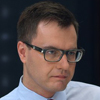
Director of Primakov Institute of World Economy and International Relations (IMEMO)
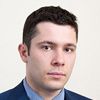
Governor of the Kaliningrad Region
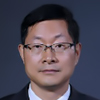
Vice President of China Institutes of Contemporary International Relations (CICIR), Director of the Institute of European Studies, China (online)
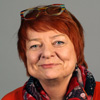
Research Fellow at Stockholm International Peace Research Institute (SIPRI), former Member of the Parliament of Finland (2003–2007), former Member of the European Parliament (2011–2014), Finland
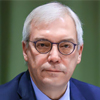
Deputy Minister of Foreign Affairs of the Russian Federation
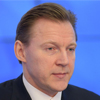
Director of the Institute of Europe of the Russian Academy of Sciences
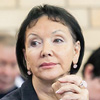
Head of the Department for European Political Studies, Primakov Institute of World Economy and International Relations (IMEMO)
17:30–19:00
17:30–19:00
Rise of the Global South
Not so long ago, discussions about the "rise of the Global South" were nothing more than a tribute to intellectual fashion. But radical changes have taken place in recent years: today, two of the world's five largest economies belong to the Global South, and the phrase itself is increasingly being heard on global platforms. Developing countries are asserting their subjectivity, trying to break the hierarchy that has been developed over the centuries, demanding that former metropolises repent for centuries of colonial oppression and renounce neo-colonialism. How far will this process of subjectivity go? Will the Global South be able to speak with one voice to defend its interests?
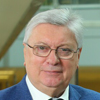
Rector of MGIMO University, Full Member of the Russian Academy of Sciences
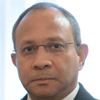
Convenor of NatStrat, Member of the National Security Advisory Board, India
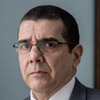
Director of the Center for International Policy Studies, Republic of Cuba
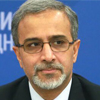
Former Ambassador of India to the Russian Federation (2018–2021)
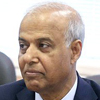
Former Ambassador of the People's Republic of Bangladesh to the Russian Federation (2009–2019)
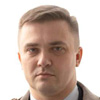
Head of the Center for the Indo-Pacific Region, Primakov Institute of World Economy and International Relations (IMEMO)
